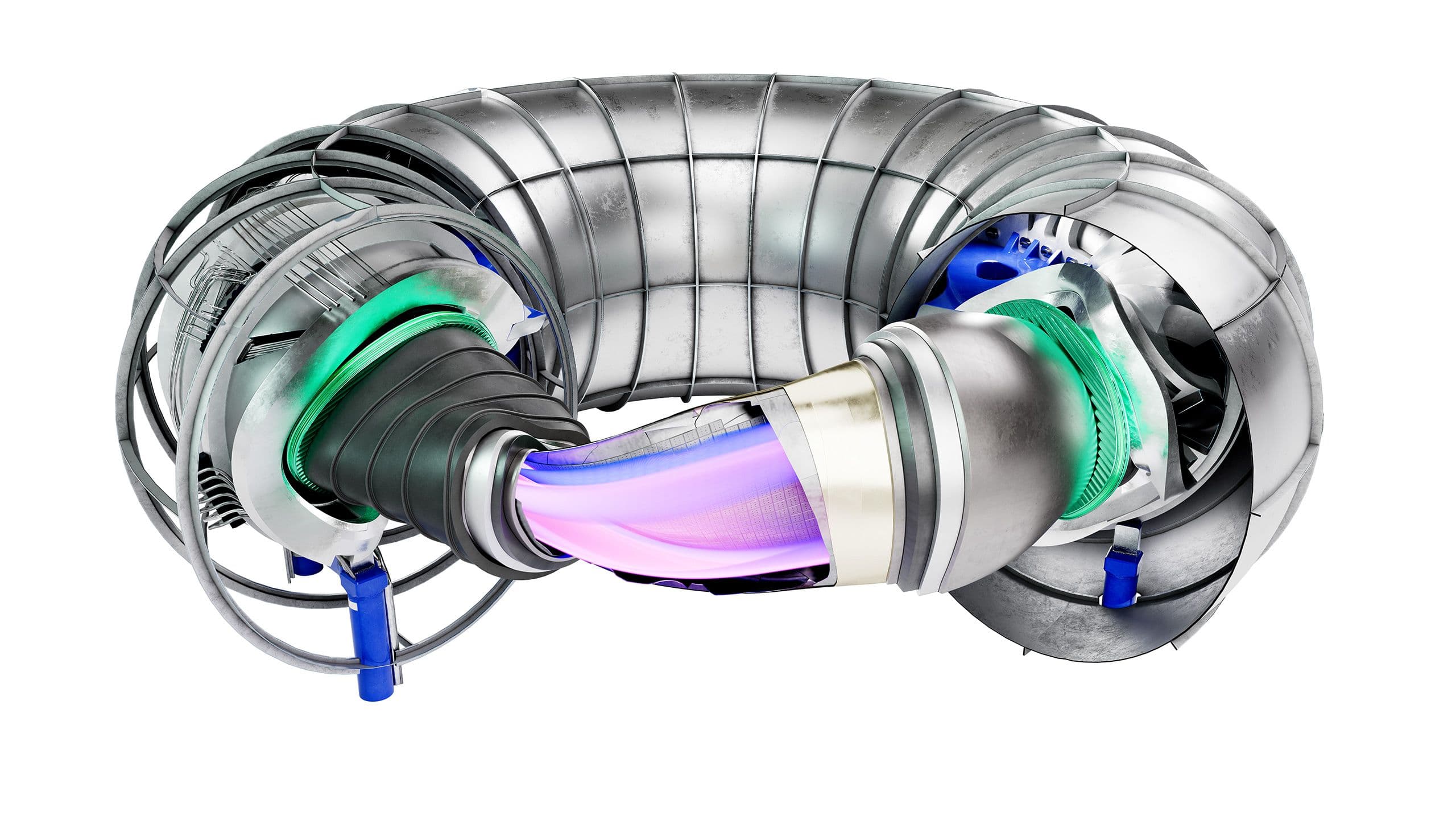Why we invested in Phasecraft
by Ian HogarthI’ve been long obsessed by how Europe can define new branches of the tech tree, and in the process build its first trillion dollar company. I’ve written about how there are important lessons we can take from the sale of DeepMind to Google - both the example of how Demis assembled some of the world’s brightest scientists to build a new branch of the tech tree, but also the failure of venture capital to support his scale of vision and the cost of an early sale to Google.
At Plural we try to put our money where our mouth is. For Europe to create generational companies to rival the US and China, we need to bring together the world’s brightest scientists to define and commercialise entirely new ground, rather than playing catchup in established fields. When I first met quantum algorithm startup Phasecraft back in 2019 I got that tingling feeling that this could be such a team and joined the board as Chair.
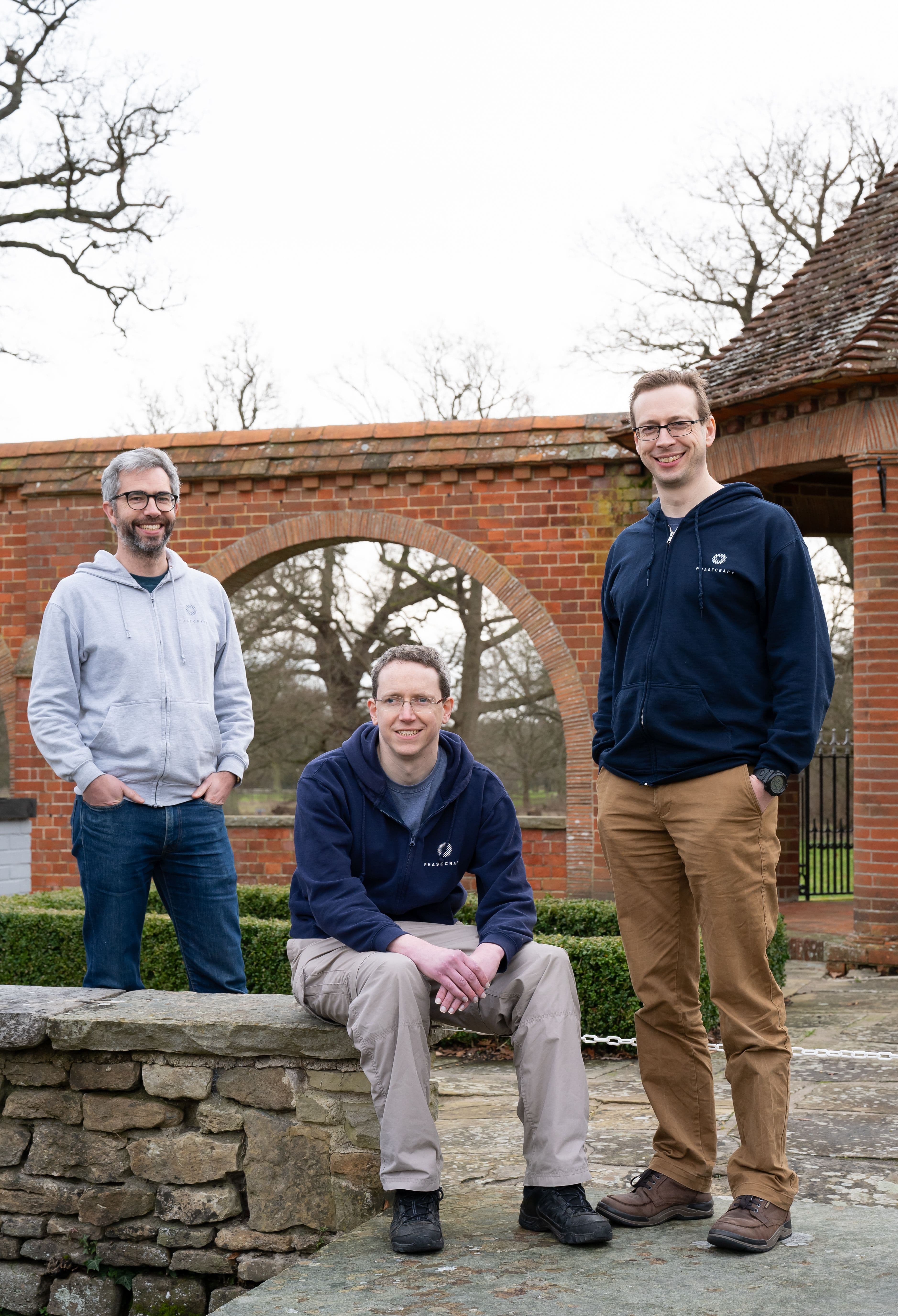
The co-founders Professors Ashley Montanaro, Toby Cubitt and John Morton are some of the top quantum scientists globally who have won multiple prestigious prizes between them while each heading up major UK quantum research labs. They have also attracted other extraordinary scientific peers like Professor Steve Flammia who leads their US office.
Full speed to quantum advantage
They are totally focused on a single extraordinary milestone: scientific quantum advantage. This will be the watershed moment when a quantum algorithm running on quantum hardware can do something scientifically useful that was not previously possible on a classical computer. This will be the moment that quantum computing starts allowing us to create new scientific knowledge - in the same way that DeepMind’s application of AI to protein folding expanded our understanding of biology.
Phasecraft is a highly opinionated company and is betting they can do this before any other team in the world with a high conviction focus on material science and optimisation.
Once we get to scientific quantum advantage we’ll be able to start to use quantum computers to optimise complex systems like financial models and energy grids, and gain much more creative control over biology and material science. Quantum simulations will help us solve really important problems, from developing new superconductors to new battery materials.
Major breakthroughs
There are broadly two inputs to getting to scientific quantum advantage. The first is improving the performance of quantum hardware, and the second is what Phasecraft does - using software and algorithms to get more performance from the qubits you have.
The painstaking work being done by hardware developers to scale up is remarkable, demanding high-precision research engineering in areas like lasers or cryonics, and is vital to get us to scientific quantum advantage. But algorithmic improvements are a less capital intensive way of getting us there faster, with Phasecraft moving the field forward by coming up with brilliant new algorithmic ideas.
We can see just how big an impact algorithmic improvements can have on this progress through the company’s work modelling the structure of a material called SrVO3, which reduced the complexity and demands on quantum operations for the task by 43,000,000x.
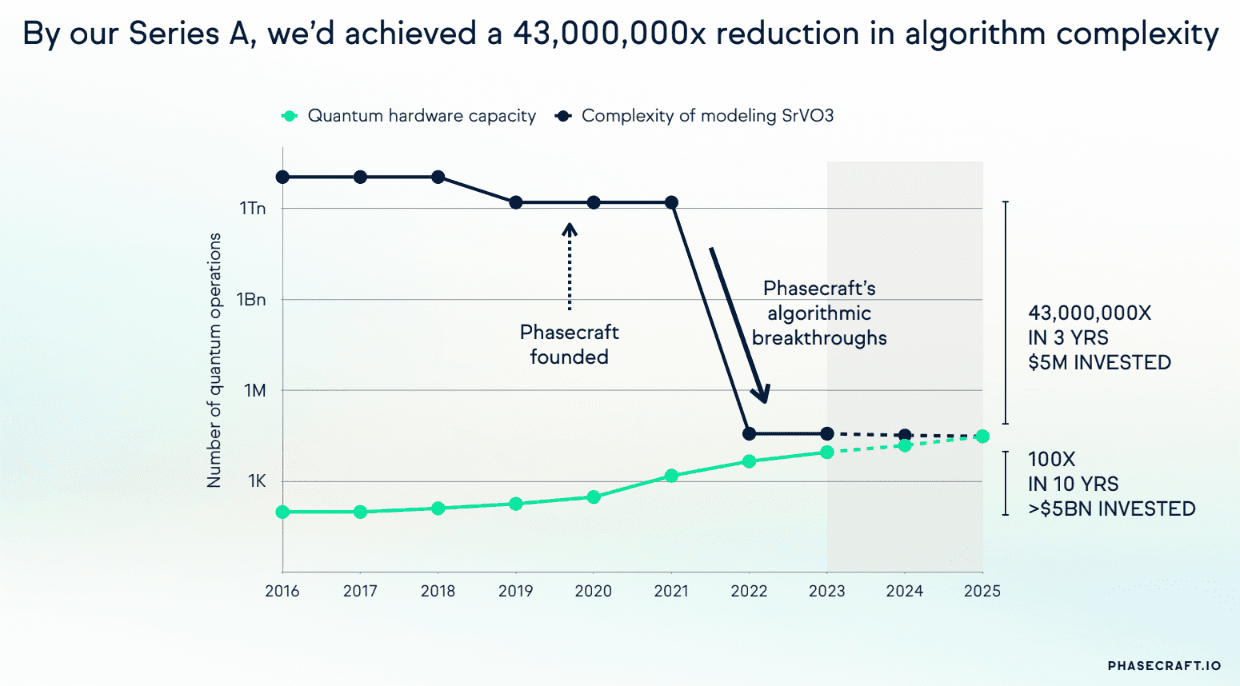
The hardware horse race
While there are many parallels between quantum computing and AI, there’s also one key difference that makes Phasecraft a particularly compelling venture investment - we don’t yet know which type of quantum hardware will win - there is no equivalent of NVIDIA in quantum hardware but instead a large amount of capital flowing to many different approaches.
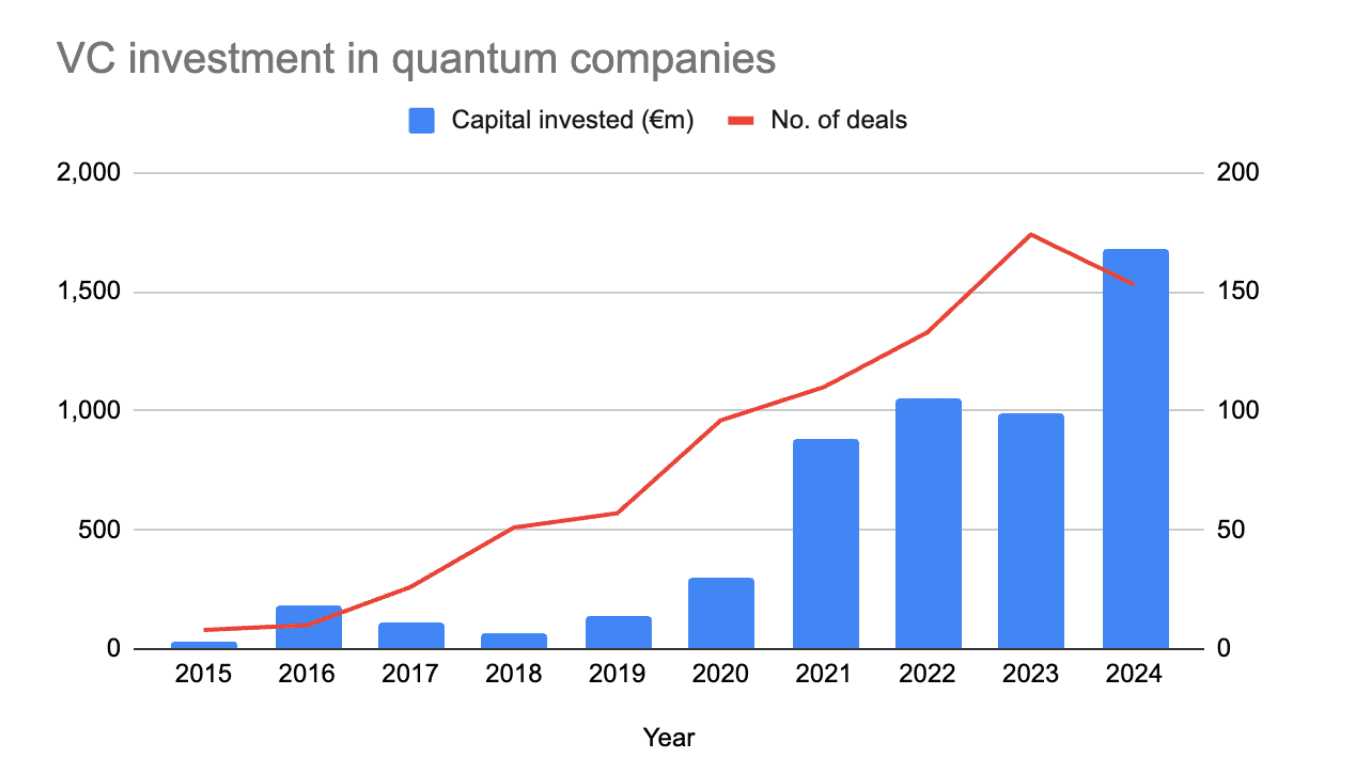
There is a proliferation of hardware approaches - from superconducting qubits, to neutral atoms, silicon, photonics and ion traps, all of which have their merits and limitations. And within each hardware approach there are multiple competing players from the biggest tech companies in the world like Google and Microsoft to startups like PsiQuantum and QuEra. Phasecraft has partnered with many of the top players and are running different algorithmic experiments with each partner - testing the limits of how bespoke algorithms can perform best depending on the hardware.
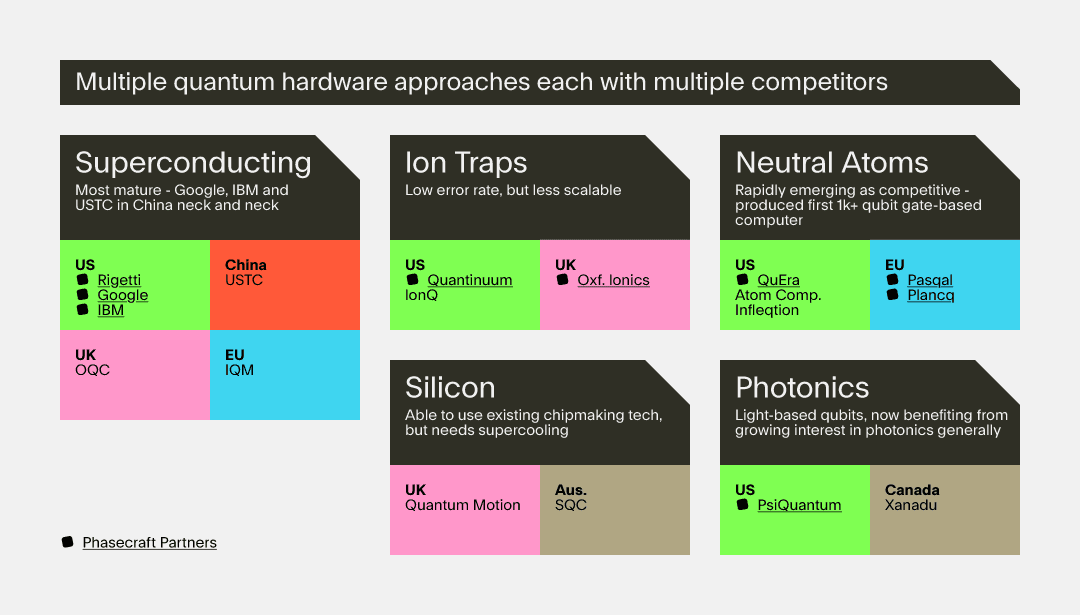
They are not doing this in a vacuum but have also partnered with expert end users including materials developer Johnson Matthey for material discovery, solar cell developer Oxford PV and the UK’s National Grid for optimisation to try to close the gap between their algorithms and real world problems. We still don’t know which hardware approach will be best but Phasecraft is giving industry a hardware-agnostic software layer they can build on, regardless of how the hardware race plays out.
A high-ambition Series B
Phasecraft are determined to accelerate to scientific quantum advantage and have raised a $34m Series B co-led by Plural, Peter Barrett at Playground (who is doubling down after leading their Series A) and Novo Nordisk. The syndicate spans Europe, Silicon Valley and one of Europe’s largest technology companies.
Time for Europe to stand up tall, show we can define new branches of the tech tree and contribute to global prosperity by ushering in a new era of scientific progress.

